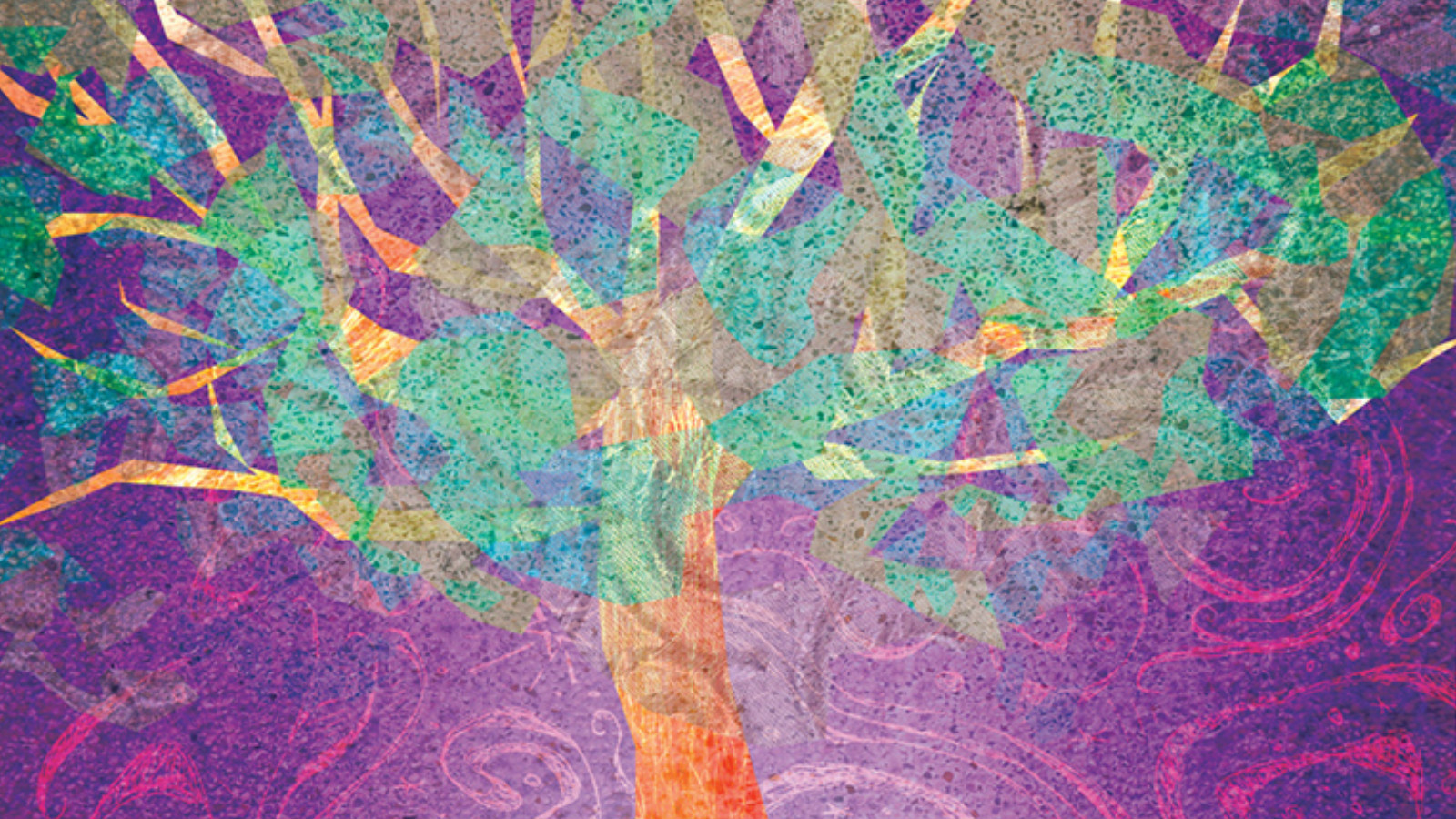As a day of unique sanctity, Shabbat’s liturgy is different from the standard weekday liturgy in its structure and in many of its themes. A number of the themes interwoven throughout the liturgy of Shabbat emphasize certain larger spiritual values of Judaism; in order to explore them, we must turn our attention first to a structural characteristic of Shabbat liturgy.
On Shabbat, Requests Yield to Thanks
On weekdays, the central portion of the 19-blessing Amidah prayer—fully 13 of its blessings—contains temporal requests, such as those for a prosperous livelihood, a bountiful year for produce, and for true justice to be enacted on earth. This entire section is replaced on Shabbat with a single blessing that emphasizes the special holiness of the day.
Called in Hebrew kedushat ha-yom (“the sanctity of the day”), this paragraph is repeated in each of the Amidah prayers recited on Shabbat—at Ma’ariv (evening service), Shaharit (morning service), at the additional Musaf service, and at Minhah on Shabbat afternoon. In it, worshippers thank God for the gift of Shabbat and say: “Grant that we inherit Your holy gift of Shabbat forever, so that Your people Israel who sanctify Your name will always find rest on this day. Praised are You, Adonai, who sanctifies Shabbat.”
Why Not Ask for Things on Shabbat?
Why are there no individual or communal requests made of God on Shabbat? After all, it might seem that such a holy day would be an especially propitious time to ask — and possibly receive — whatever one might request of God. An ancient midrash (rabbinic interpretation) deals with this precise question when it offers the following scenario:

Help us keep Jewish knowledge accessible to millions of people around the world.
Your donation to My Jewish Learning fuels endless journeys of Jewish discovery. With your help, My Jewish Learning can continue to provide nonstop opportunities for learning, connection and growth.
“Why does a person not pray ‘Blessed are You, Adonai, Healer of the people Israel’ [one of the 13 weekday petitionary blessings] on Shabbat? Lest they remember a sick loved one and then become sad on the holy Shabbat which has been set aside as a day of rest and delight. Therefore, on Shabbat we consciously choose to enjoy and celebrate the unique sanctity of the day” (from Midrash Tanhuma, Parashat Vayera).
Shabbat’s Themes: Creation, Revelation and Redemption
Turning from what is absent from the Shabbat liturgy to what is present, we find that the first significant theme is actually a pattern of three subjects that appear in subtle ways in many prayers, just as the musical theme of a fugue reappears in subtly different forms. This first three-in-one theme, pointed out and explored by the early 20th-century German Jewish theologian Franz Rosenzweig, is that of creation, revelation, and redemption.
The creation of the world appears throughout many prayers in Jewish liturgy because it emphasizes God’s role as the supreme author of all existence. Revelation of the Torah illustrates God’s active involvement in the world of human beings, especially the origins and ongoing history of the Jewish people. And finally, redemption of the Israelites from slavery serves as a harbinger of the messianic redemption, of not just the Jewish people but all humanity, in some distant time.
Taken together, these three topics encapsulate the essential Jewish understanding of all existence: the beginning (creation), the middle (revelation), and the end (redemption)—two of them having already arrived and one yet to come.
On Shabbat, the subject of creation is emphasized in the Friday-evening Amidah. One of the paragraphs of the central kedushat ha-yom blessing states (quoting from the Torah), “The heavens and the earth and all they contain were completed. On the seventh day God finished the work [of creation] which God had been doing…” (Genesis 2:1-2).
On Shabbat morning, the subject of revelation is brought to the foreground in the parallel portion of the Shaharit Amidah, which states, “Moses rejoiced at the gift of his destiny when You [O God] declared him a faithful servant… Two tablets of stone did he bring down, inscribed with Shabbat observance….”
Finally, the topic of redemption is subtly alluded to in the same spot during the final Amidah of the day, in the Mincha service, which states, “A day of rest and sanctity You [O God] have given your people…a perfect rest in which you delight.” While this passage also refers to the Shabbat day itself, it mentions too a day of “perfect rest,” which, according to the Jewish tradition, will only be enjoyed in the days of the Messiah.
Shabbat Services Are Longer
The Shabbat worship service is longer than the weekday service. On weekdays, we do not have the time to spend in extended prayer. Weekday prayer services include not much more than the bare essentials of what is considered obligatory for every Jew to recite. However, because Shabbat is a day of rest and relaxation, a day set aside for spiritual enjoyment and contemplation, the liturgy of that day is significantly expanded to enable us to more fully appreciate its unique holiness.
On a weekday, the preliminary Pesukei D’Zimra service offers a relatively short selection of Psalms and biblical passages, just enough to put us in a reverent mood for the full Shaharit (morning) service. On Shabbat this section is significantly expanded. Ten additional celebratory psalms are added, reaching a crescendo with Psalm 92, “Song for the Sabbath day,” the only psalm out of 150 to praise God for the gift of the Shabbat.
On a weekday, we move quickly from Pesukei D’Zimra to the Barekhu, the beginning of the Shaharit service. On Shabbat, a number of extra introductory piyyutim (liturgical poems) are included, which creatively express the inadequacy of human beings to truly praise God. One passage states,
“Could song fill our mouth as water fills the sea and joy flood our tongue like countless waves, could our lips utter praise limitless as the sky… never could we fully state our gratitude for one ten-thousandth of the lasting love which is Your precious blessing, dearest God, granted to our ancestors and us.”
One More Plea, Much More Music
During the communal repetition of the Amidah, the third blessing—called Kedushah (holiness) or Kedushat Ha-shem, a prayer praising God’s holiness—is also expanded on Shabbat. Surprising, in light of the general elimination of blessings of request in the Shabbat Amidah, is the inclusion here of a plea for God to “reign over us soon, for we await You! When will You reign in Zion? Let it be soon…” The direct language and heartfelt sentiment of this prayer serves to emphasize the close spiritual connection between God and Israel on Shabbat.
In every Jewish community, the Shabbat liturgy is performed with far more musical embellishment than one finds in weekday worship. This too serves to extend the time needed for worship, but few participants would prefer the relatively bland weekday musical style to prevail during Shabbat worship as well.
Musaf (Additional Service) and a Taste of Paradise
The final contrast between the Shabbat and weekday liturgy is the presence of an entire extra service at the end of every Shabbat morning service. It is called Musaf, or “addition,” and it is omitted in most Reform and Reconstructionist synagogues. Replacing a 2,000-year-old additional animal sacrifice offered each Shabbat (korban musaf), the Musaf service stands as a verbal substitute. It also offers another opportunity to thank God for the joy of Shabbat.
In the Ashkenazic rite, this is the only time during Shabbat in which the worshippers recite a paragraph that begins thus: “Those who celebrate Shabbat rejoice in Your kingship, hallowing the seventh day, calling it a delight…”
According to the Talmudic rabbis, the celebration of our temporal Shabbat is only one-60th of the delight that we will all merit to experience in the messianic World to Come. Therefore, the themes mentioned in the prayers, underscored by the festive musical settings and the additional length of the services, invite the worshipper to imagine the idyllic spiritual state awaiting us all, and offer us an all-too-brief foretaste of that time.
Sign up for My Jewish Learning’s RECHARGE, a weekly email with a collection of Shabbat readings and more to enhance your day of rest experience.
Midrash
Pronounced: MIDD-rash, Origin: Hebrew, the process of interpretation by which the rabbis filled in “gaps” found in the Torah.
Mincha
Pronounced: MINN-khah, Origin: Hebrew, the afternoon prayer service. According to traditional interpretation of Jewish law, men are commanded to pray three times a day.
Shabbat
Pronounced: shuh-BAHT or shah-BAHT, Origin: Hebrew, the Sabbath, from sundown Friday to sundown Saturday.
Torah
Pronunced: TORE-uh, Origin: Hebrew, the Five Books of Moses.



